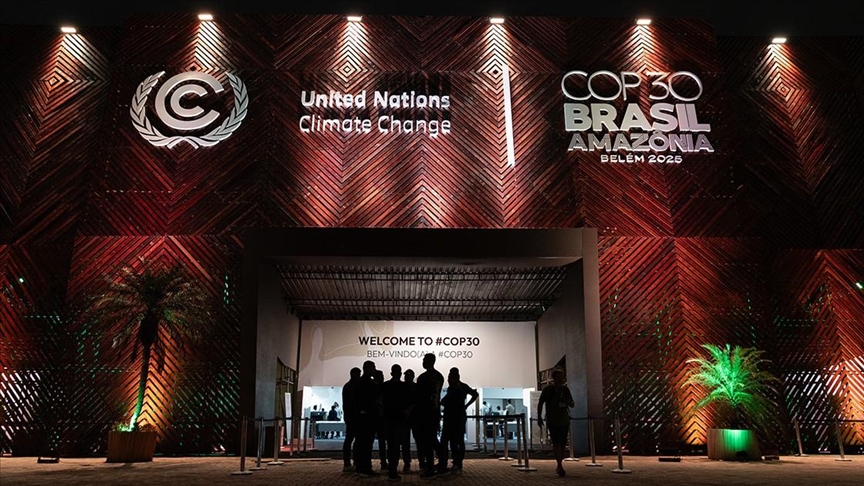UN climate change conference delegates reach last-minute agreement, but it falls short of expectations
Final text does not include roadmap to phase out fossil fuels — main driver of human-induced climate change — despite calls from over 80 countries
 Photo by Yeter Ada Seko
Photo by Yeter Ada Seko
ISTANBUL
Delegates at COP30, this year’s UN climate change conference, finalized a deal on the conference’s concluding agreement, yet it falls well short of the high expectations of many delegates, NGOs, and environmental groups, according to media reports.
Although over 80 countries meeting in Belem, Brazil called for a global roadmap to phase out fossil fuels — the main driver of human-induced climate change — no such proposal was included in the final text.
Although the conference was held in the so-called "gateway to the Amazon," the agreement failed to introduce any major new measures to halt deforestation and safeguard the Amazon rainforest, often called "the lungs of the planet."
"The venue bursting into flames couldn't be a more apt metaphor for COP30's catastrophic failure to take concrete action to implement a funded and fair fossil fuel phaseout," Jean Su, energy justice director at the Center for Biological Diversity, told US network ABC, referring to the fire that took place Thursday at the conference venue.
"These negotiations keep hitting a wall because wealthy nations profiting off polluting fossil fuels fail to offer the needed financial support to developing countries and any meaningful commitment to move first," she added.
Acknowledging the frustration among some delegates and environmental groups over the absence of roadmaps on deforestation and fossil fuels, COP30 President André Correa do Lago said near the end of the conference that he would use the authority of his position to create those roadmaps himself.
However, these roadmaps would not be binding, as they were not included in the approved agreement and lack the support of all 195 countries.
The World Resources Institute, an environmental research organization that took part in COP30, stated that although the nearly two-week conference saw some notable successes, it ultimately fell short of what many delegates and advocates had hoped for.
"COP30 delivered breakthroughs to triple adaptation finance, protect the world's forests, and elevate the voices of Indigenous people like never before," Ani Dasgupta, the group's president, told ABC.
"This shows that even against a challenging geopolitical backdrop, international climate cooperation can still deliver results.”








